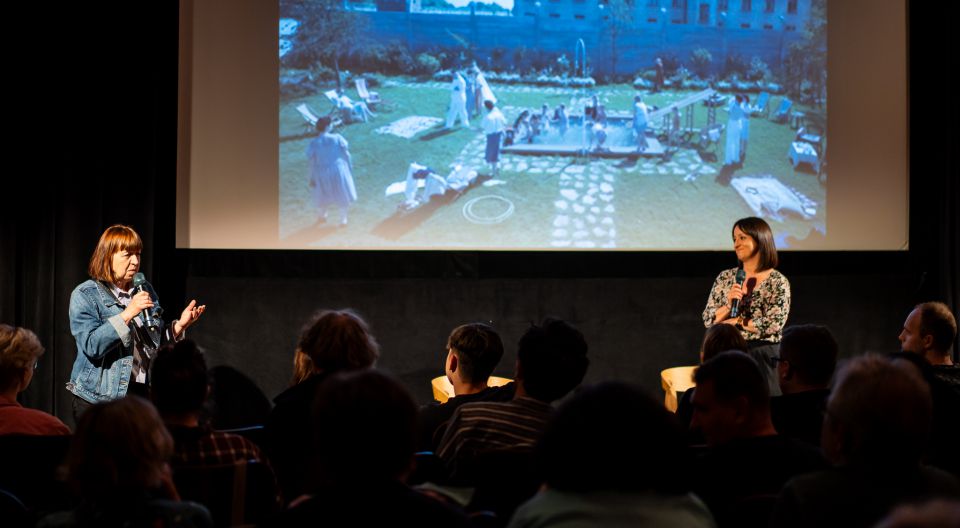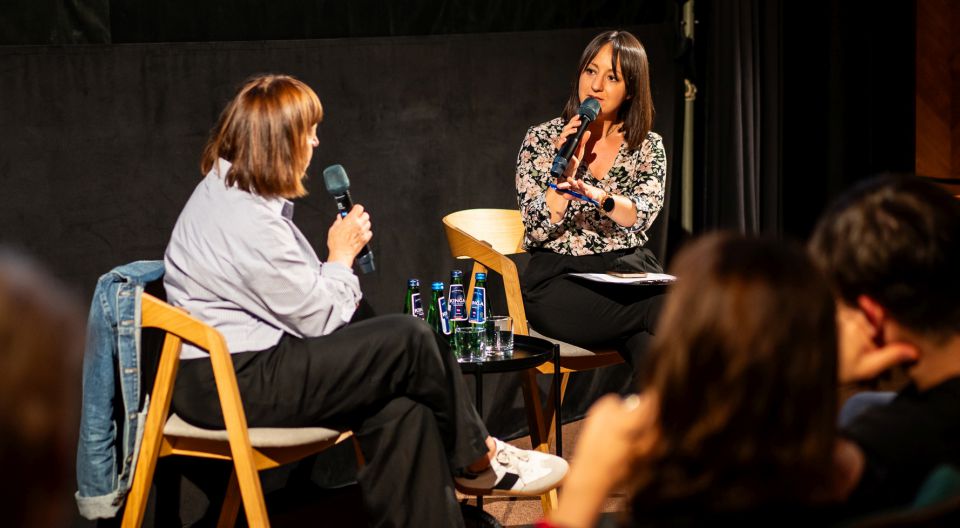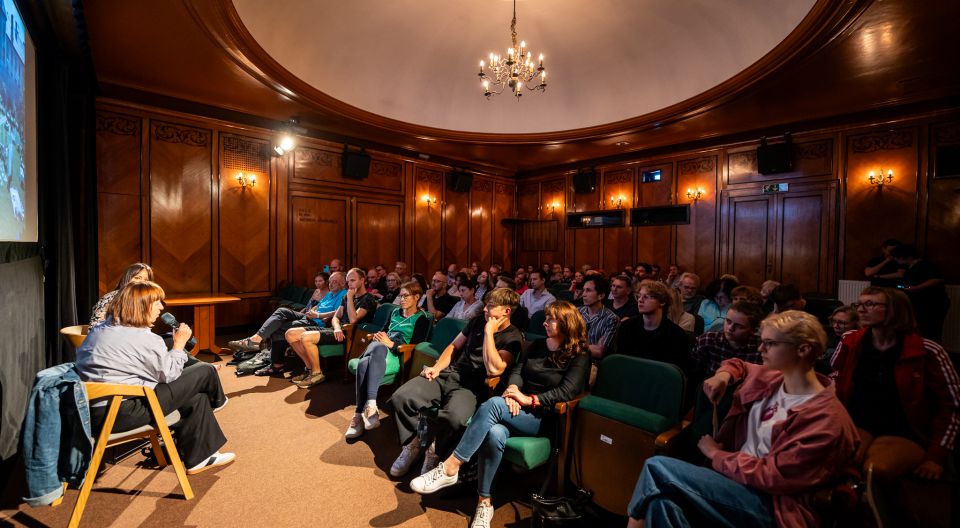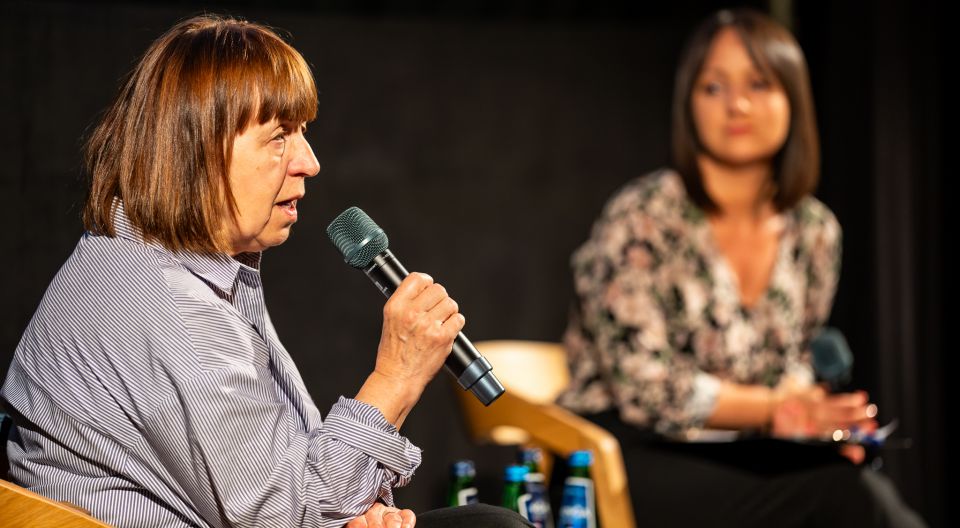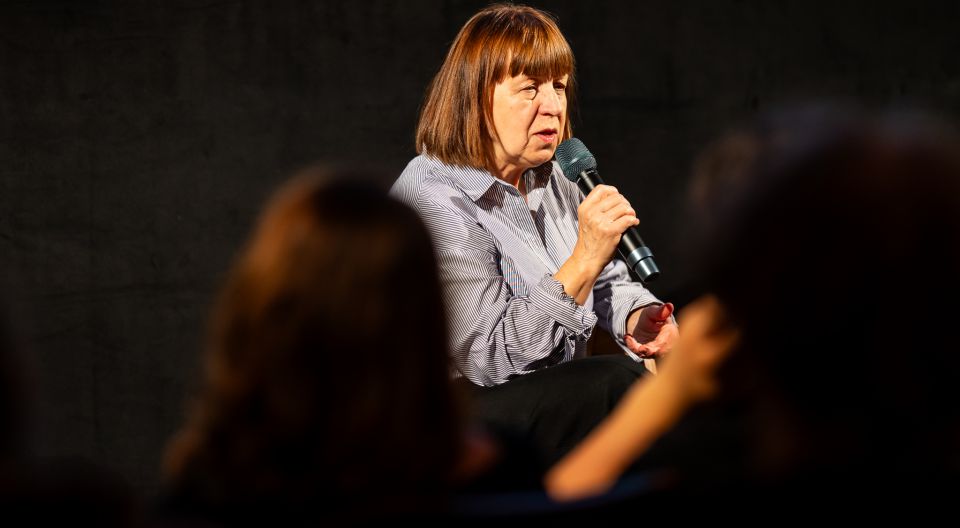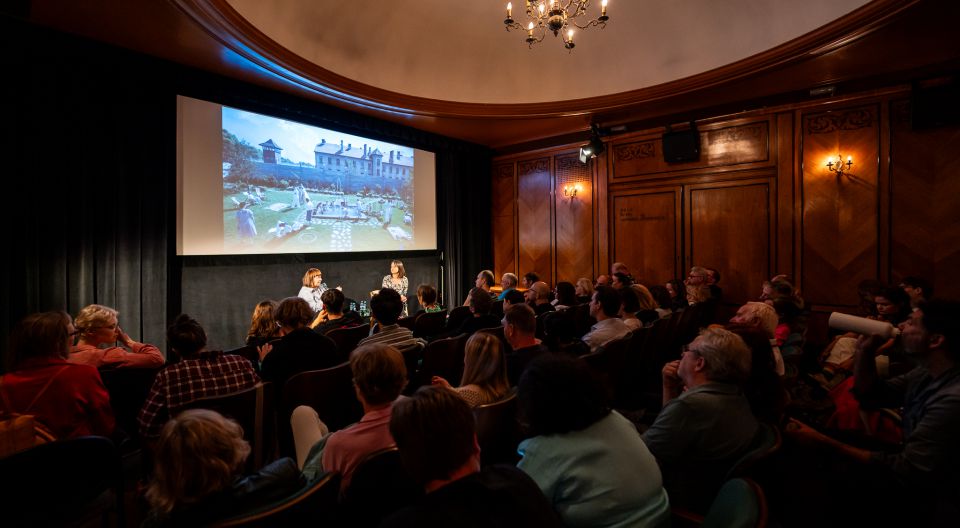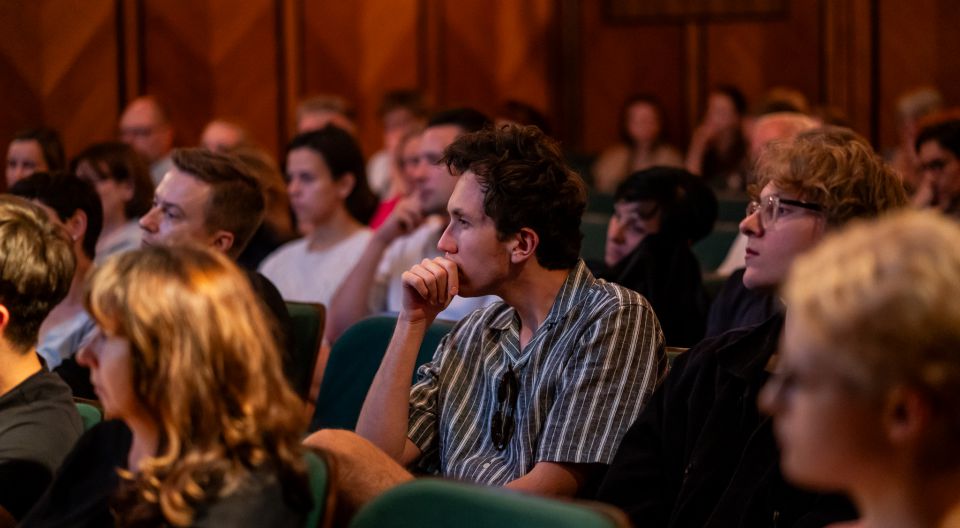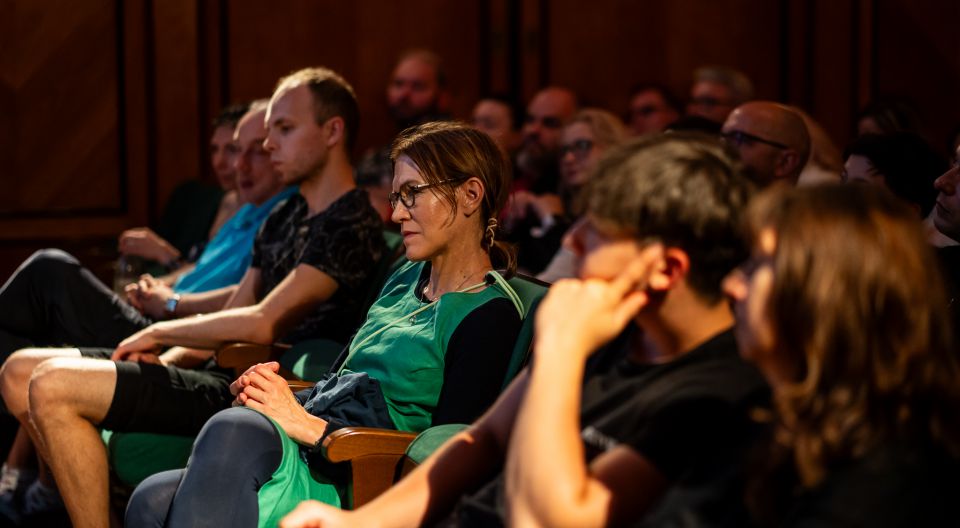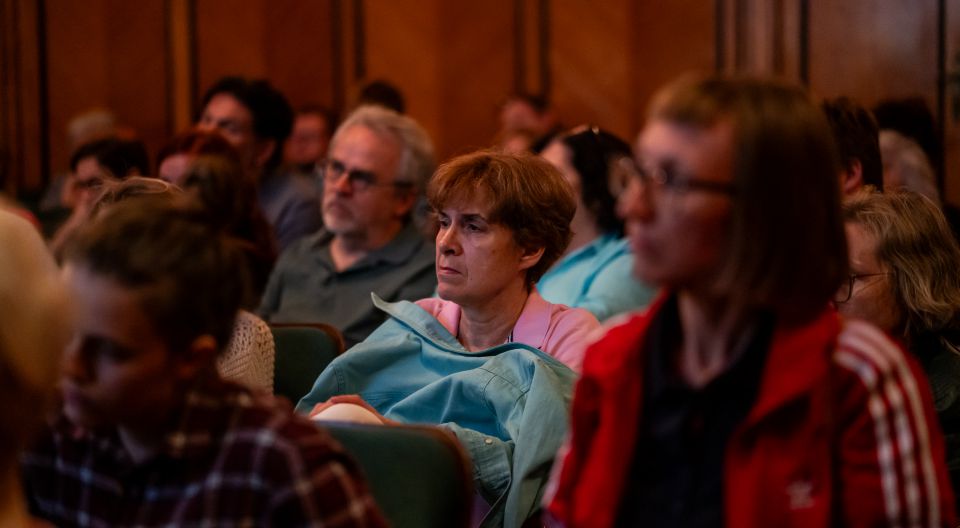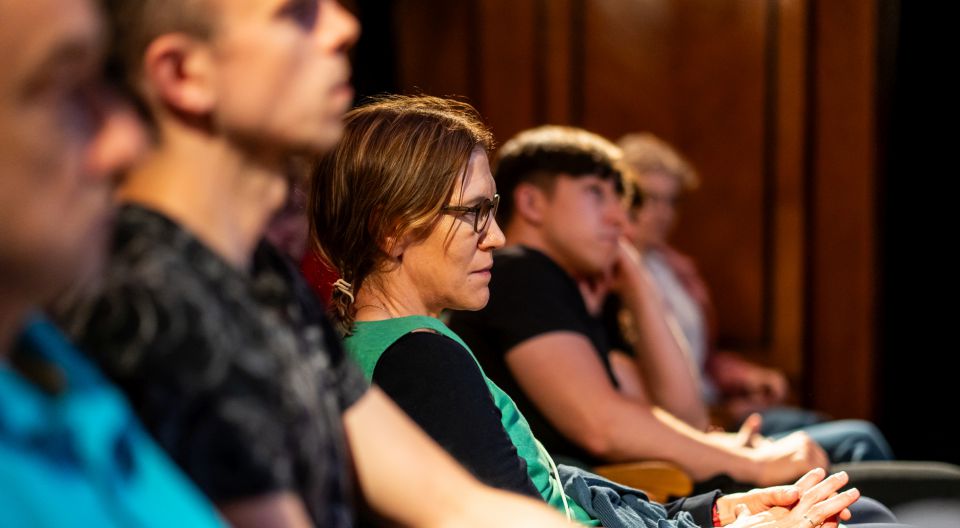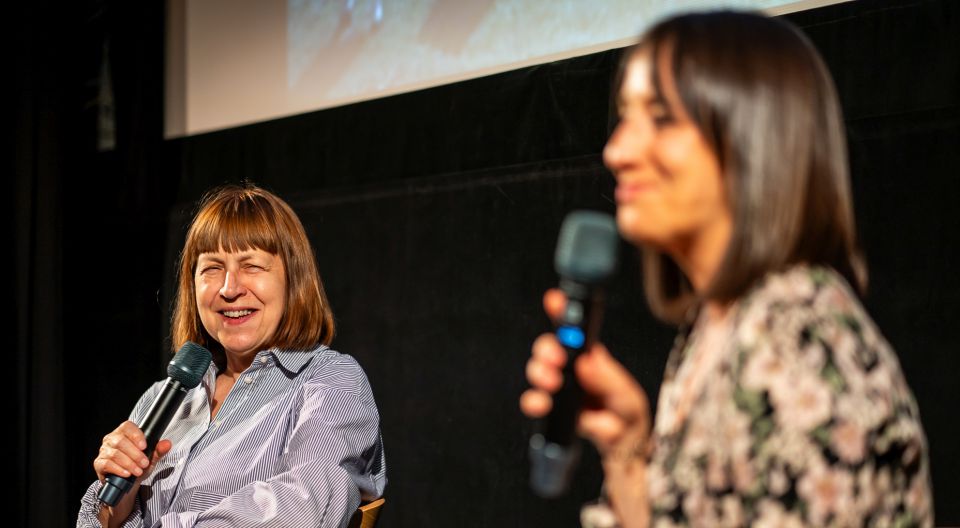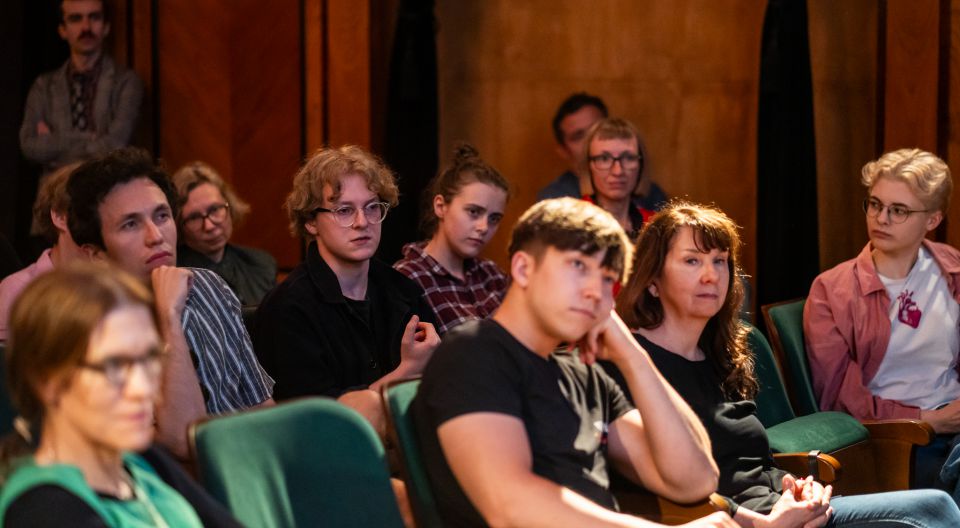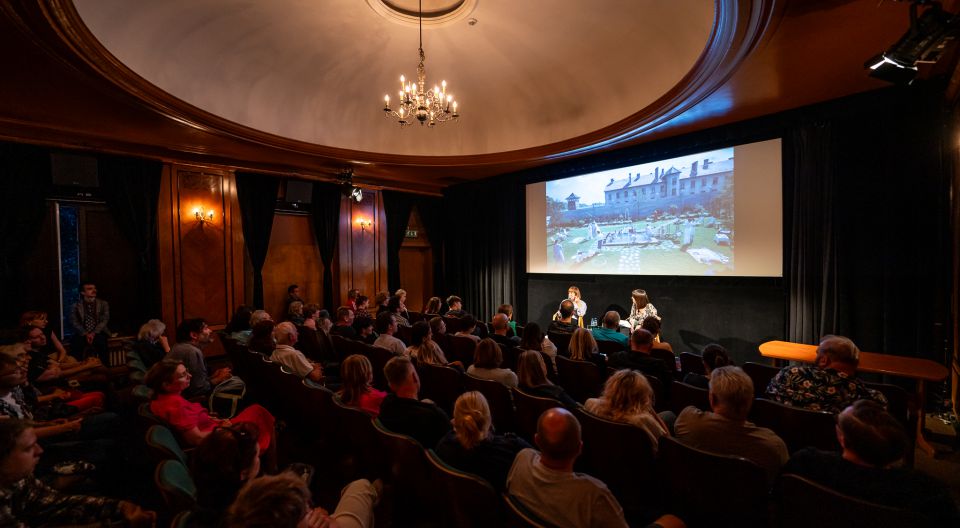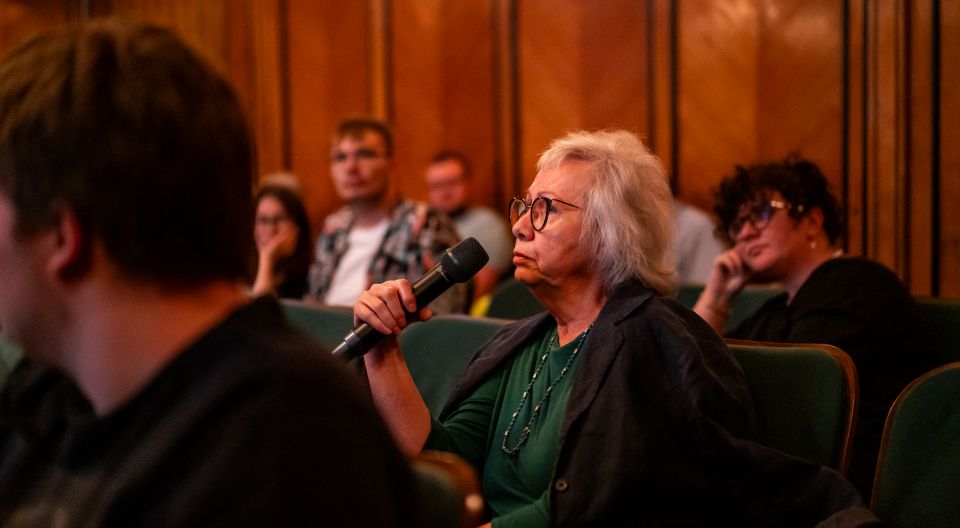21.
06.
2024.
Others
Others
Big Brother in the Nazi's house. Discussion with Ewa Puszczyńska after the screening of "Zone of Interest", the last guest of our film club before the summer holidays.
The record-breaking number of people in the audience remained emotional until the last seconds of the end credits, stirred by a film that is moving like no other. Jonathan Glazer's INTEREST ZONE, leading a triumphant procession from the Cannes festival (Grand Prix) to the red carpet in Los Angeles (two Oscars: Best International Film and Best Sound), lit up the screen of the Film School Cinema. On the longest evening of the year, Ewa Puszczyńska - the film's producer and Academy Award winner - met with audience members crowding into the Antoni Bohdziewicz historic hall.
"It all started with research. The Auschwitz Museum provided us with archives. Later, director Piotr Cywiński said that it was almost obsessive," said the producer, thus outlining not only the early beginnings of the creation of ZONE OF INTEREST, but also paying attention, above all, to the thoroughness of the film crew’s approach to the production at every stage. It is worth adding that the production is unusual or even groundbreaking. Jonathan Glazer's latest film is not a typical film showing the horror of concentration camps; the fear of the Holocaust is shown as if contextually, behind the fence of the beautiful estate of the family of Rudolf Höss, the commander of KL Auschwitz-Birkenau. Ewa Puszczyńska explained that this work can be interpreted in various ways, but the basic idea running through the entire film is the contemplation of the denial of all the evil that is happening just outside the wall. “The whole philosophy of this film is observation,” she clarified.
Both the host of the meeting, Agata Gwizdała, and numerous voices from the room asked detailed questions about the shoot. The producer started with the set design: the Höss villa was carefully reconstructed and adapted to an unusual shooting process which is slowly becoming a legend. Ten cameras were placed so as to allow the actors to play freely in different rooms of the building, or rather to be in them, because "the point was that they weren't acting," Puszczyńska said, "they were there." Some of the cameras were hidden, and the crew responsible for shooting worked from rooms away from the set. "We used to say that it was Big Brother in the Nazi's house," she added, explaining that individual shots were taken simultaneously. "The scenes in which the maid pours schnapps, another maid cleans the blood from shoes, Mrs. Höss talks to her mother - they were all shot at the same time. Like in the theatre."
The effects of this hard, long-term work were the subject of the discussion which went on for an hour after the screening. Finally, the producer turned to the audience, thanking them for coming in such large numbers. "This is really the greatest award. It seems that the Oscars…, but your commitment is really the most important."
It was the last meeting with a guest at the Film School Cinema before the summer break, and the last screening will be next week on 27, June at 19:00 i.e. "Monster" by Hirokazu Koreeda.
Text: Patryk F. R. Ostrowski
Photos: Mikołaj Zacharow
"It all started with research. The Auschwitz Museum provided us with archives. Later, director Piotr Cywiński said that it was almost obsessive," said the producer, thus outlining not only the early beginnings of the creation of ZONE OF INTEREST, but also paying attention, above all, to the thoroughness of the film crew’s approach to the production at every stage. It is worth adding that the production is unusual or even groundbreaking. Jonathan Glazer's latest film is not a typical film showing the horror of concentration camps; the fear of the Holocaust is shown as if contextually, behind the fence of the beautiful estate of the family of Rudolf Höss, the commander of KL Auschwitz-Birkenau. Ewa Puszczyńska explained that this work can be interpreted in various ways, but the basic idea running through the entire film is the contemplation of the denial of all the evil that is happening just outside the wall. “The whole philosophy of this film is observation,” she clarified.
Both the host of the meeting, Agata Gwizdała, and numerous voices from the room asked detailed questions about the shoot. The producer started with the set design: the Höss villa was carefully reconstructed and adapted to an unusual shooting process which is slowly becoming a legend. Ten cameras were placed so as to allow the actors to play freely in different rooms of the building, or rather to be in them, because "the point was that they weren't acting," Puszczyńska said, "they were there." Some of the cameras were hidden, and the crew responsible for shooting worked from rooms away from the set. "We used to say that it was Big Brother in the Nazi's house," she added, explaining that individual shots were taken simultaneously. "The scenes in which the maid pours schnapps, another maid cleans the blood from shoes, Mrs. Höss talks to her mother - they were all shot at the same time. Like in the theatre."
The effects of this hard, long-term work were the subject of the discussion which went on for an hour after the screening. Finally, the producer turned to the audience, thanking them for coming in such large numbers. "This is really the greatest award. It seems that the Oscars…, but your commitment is really the most important."
It was the last meeting with a guest at the Film School Cinema before the summer break, and the last screening will be next week on 27, June at 19:00 i.e. "Monster" by Hirokazu Koreeda.
Text: Patryk F. R. Ostrowski
Photos: Mikołaj Zacharow
